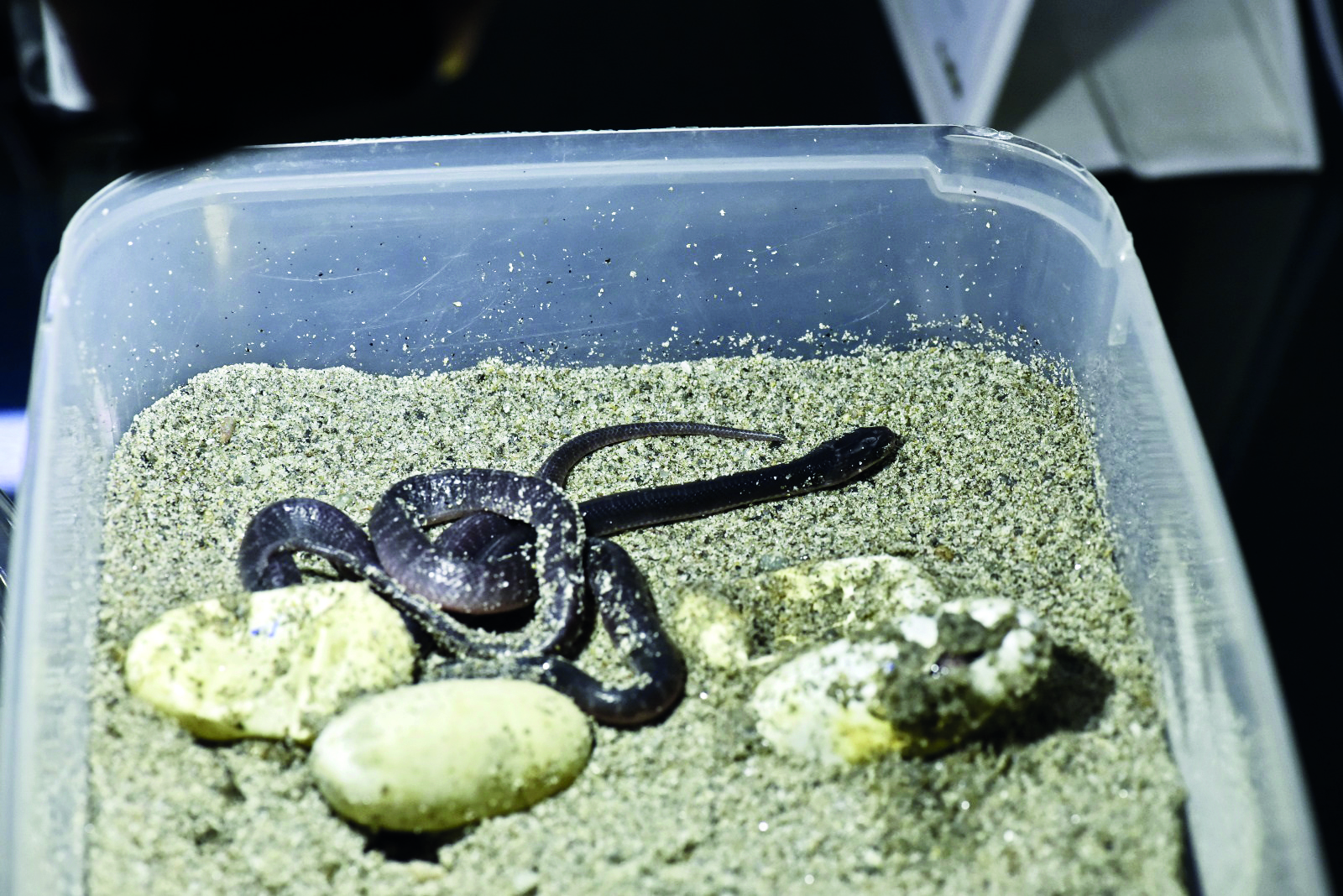Snake eggs hatched artificially at Jaldapara National Park

Alipurduar: In an example of snake conservation, eggs recovered from the locality were hatched artificially in Jaldapara National Park. So far, 31 snake eggs have hatched in Jaldapara. Among them were 26 cobra snake eggs.
Novojit De, Assistant Wildlife Warden of Jaldapara National Park, said: “This is definitely a new precedent in snake conservation. This time, artificial hatching of snake eggs will be done regularly in Jaldapara.” According to Forest department sources, the department used to release poisonous snakes rescued from the locality back into nature.
However, in most cases, the eggs of these snakes were not collected, resulting in many eggs being wasted or eaten by predators. On May 18, forest workers in Jaldapara rescued a cobra snake from a house in Satpukuria, Falakata and recovered 27 snake eggs. Upon learning of this, herpetologist Anirban Chowdhury suggested artificial breeding of the eggs using local arrangements.
A mixture of sand and moist soil was placed in a transparent plastic box and the eggs were heated to 28 to 32 degree Celsius using bulbs, which is the ideal temperature for snake eggs to hatch. One of the eggs was rotten and did not hatch, but the remaining 26 eggs successfully hatched within 50 days. Similarly, a female Wall krait (Kalach) with six eggs was recovered on June 5. With one egg destroyed, the remaining five eggs hatched, exciting the foresters.
Herpetologist Anirban Chowdhury said: “There is no denying the role of snakes in the ecosystem. Artificial hatching of cobra snake eggs has been done before, but artificial hatching of Kalach snake eggs has been made possible for the first time in Jaldapara. Just before hatching, the baby snakes consume all the egg yolk and the nutrition from the yolk supports them for about 8 to 10 days. Then, they become adept at catching prey by the laws of nature.”



